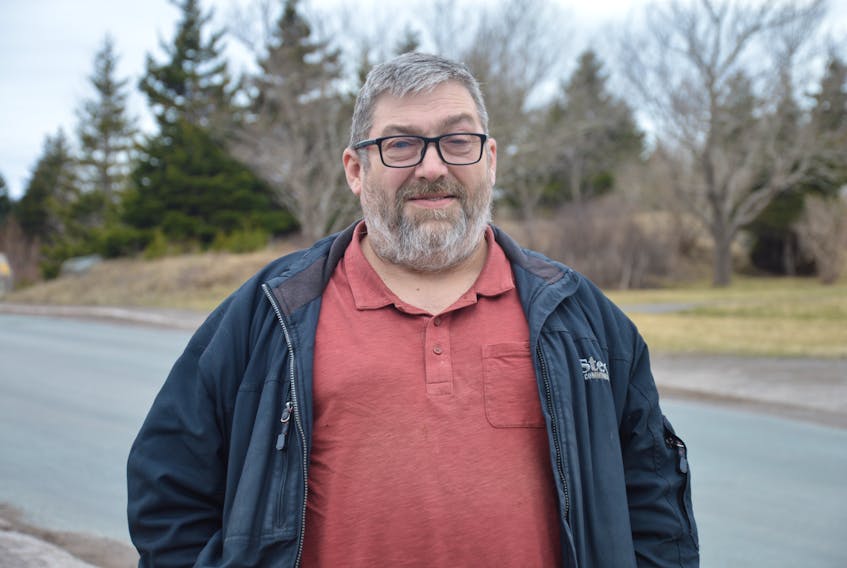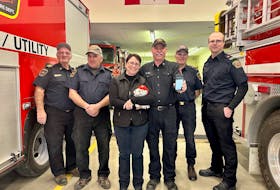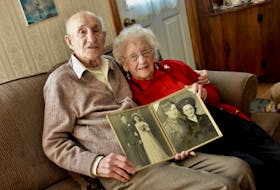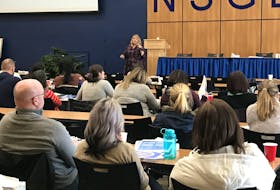MARYSTOWN, N.L. — If you choose to be an organ donor, an important step in the process is to make loved ones aware of your wishes.
That’s the message Gary Myles of Marystown wants to get across in conjunction with National Organ and Tissue Donation Awareness Week.
“My wife and I have had the talk; if I go first, she is going to make sure of that, assuming there’s any organs they want,” he laughed.
First-hand experience
Myles, a two-time cornea transplant recipient, told The Southern Gazette he was diagnosed with keratoconus in his late teens.
“I was told at the age of 18… that I would likely be blind by the time I was 30.”
According to information on the website www.mayoclinic.org, keratoconus occurs when the cornea – the clear, dome-shaped front surface of the eye – thins and gradually bulges outward into a cone shape.
In the early stages vision problems can be corrected with glasses or soft contact lenses, while more progressive stages may require rigid, gas-permeable contact lenses or other types of lenses.
Myles explained that as his corneas progressively got worse, wearing the corrective lens became painful
“That’s when you become a candidate for a transplant,” he said.
In 1995 Myles was added to the transplant list, remaining there for three years before finally having the procedure on his right eye in 1998.
“It was a success, and I was able to get a lens fitted on it,” he said. “You’re going from a cornea that’s basically, if we compare it to a car, would be a heap of junk to a good used car, not a new one but a good used car.”
The cornea in his right eye is still healthy. In 2017, he developed issues with his left eye – he could not see detail, only light and dark.
He underwent a cornea transplant in his left eye in 2018.
Myles said while his transplant wasn’t lifesaving – it was life-enhancing.
“I’ll never see 20/20; I’ve never seen 20/20, never will, but a lot of people don’t. You can have perfectly good functional vision that’s not 20/20,” said Myles.
“But had I never had corneal transplants I wouldn’t even be functional now. I wouldn’t be able to work, drive a car, do regular day-to-day things that people take for granted.”
Myles said he owes the quality of life he now enjoys to the decision of others to become organ donors.
“In all honesty, there’s not a day goes by that I don’t think about them, not knowing who they are, but between them and their… love ones… they made the selfless decision that someone can benefit from this and that someone, in their case, was me.”









